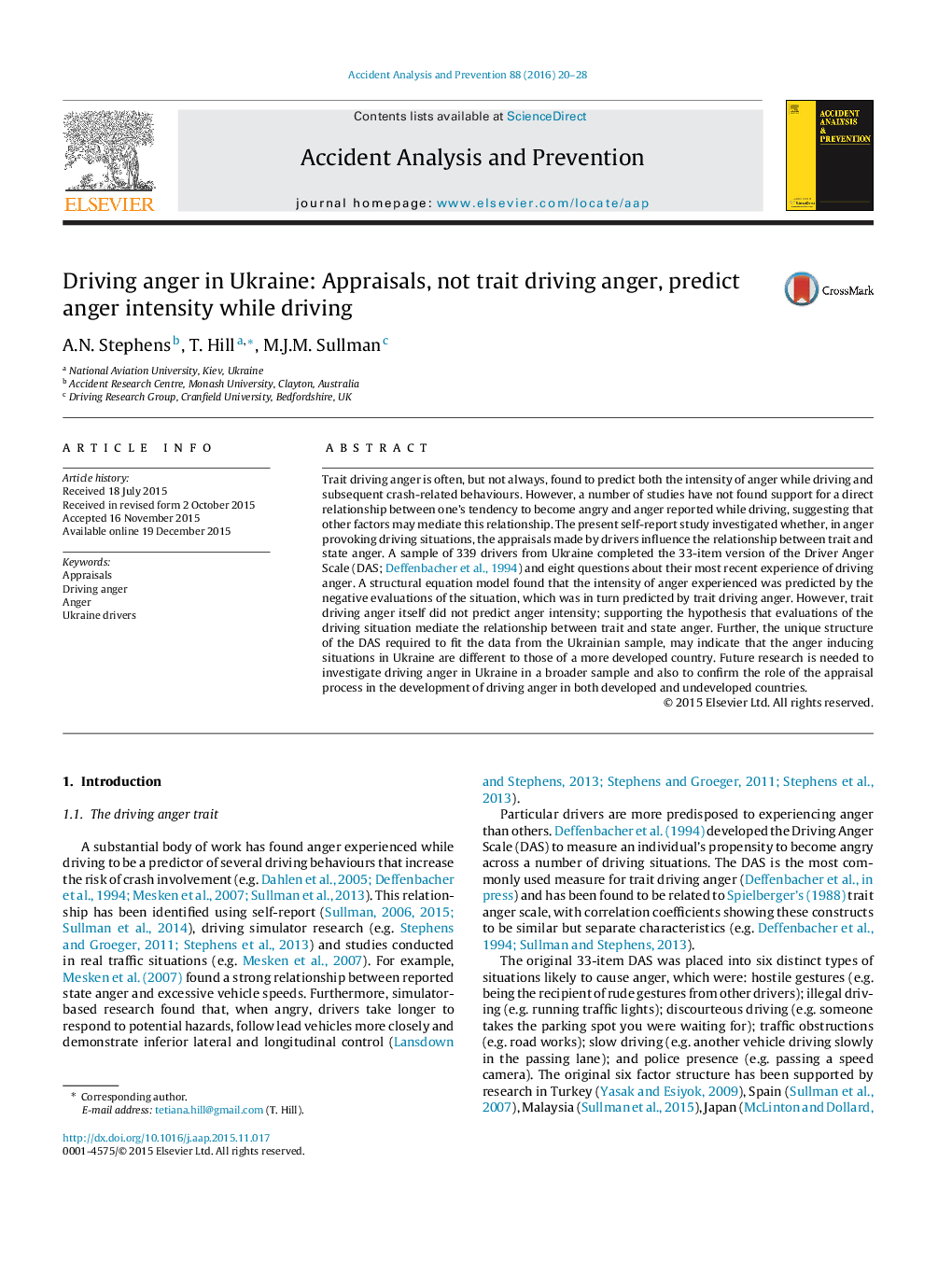| Article ID | Journal | Published Year | Pages | File Type |
|---|---|---|---|---|
| 6965351 | Accident Analysis & Prevention | 2016 | 9 Pages |
Abstract
Trait driving anger is often, but not always, found to predict both the intensity of anger while driving and subsequent crash-related behaviours. However, a number of studies have not found support for a direct relationship between one's tendency to become angry and anger reported while driving, suggesting that other factors may mediate this relationship. The present self-report study investigated whether, in anger provoking driving situations, the appraisals made by drivers influence the relationship between trait and state anger. A sample of 339 drivers from Ukraine completed the 33-item version of the Driver Anger Scale (DAS; Deffenbacher et al., 1994) and eight questions about their most recent experience of driving anger. A structural equation model found that the intensity of anger experienced was predicted by the negative evaluations of the situation, which was in turn predicted by trait driving anger. However, trait driving anger itself did not predict anger intensity; supporting the hypothesis that evaluations of the driving situation mediate the relationship between trait and state anger. Further, the unique structure of the DAS required to fit the data from the Ukrainian sample, may indicate that the anger inducing situations in Ukraine are different to those of a more developed country. Future research is needed to investigate driving anger in Ukraine in a broader sample and also to confirm the role of the appraisal process in the development of driving anger in both developed and undeveloped countries.
Keywords
Related Topics
Physical Sciences and Engineering
Chemical Engineering
Chemical Health and Safety
Authors
A.N. Stephens, T. Hill, M.J.M. Sullman,
